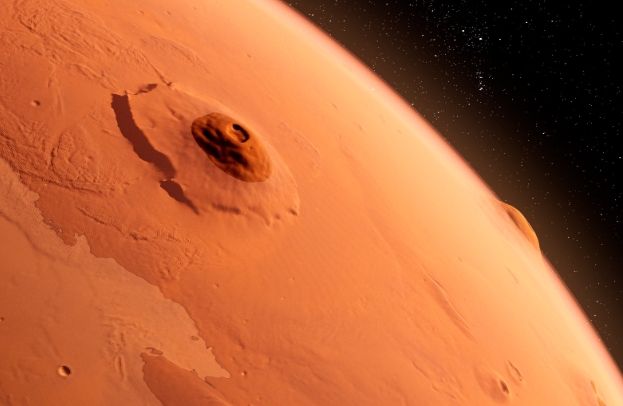The Volcanic History of Mars
Scientists have long speculated about the possibility of volcanoes on Mars. The red planet’s rugged surface bears numerous features that suggest a volcanic past.
Evidence of Volcanic Activity
Mars is home to the largest volcano in the solar system, Olympus Mons, which stands at a staggering 13.6 miles high. This massive shield volcano is thought to have formed billions of years ago through a series of eruptions.
Additionally, researchers have identified several other potential volcanic structures on Mars, including the Tharsis Montes and Elysium Mons. These features exhibit characteristics similar to volcanoes found on Earth.
Magma Chambers
One of the key pieces of evidence supporting the existence of volcanoes on Mars is the presence of magma chambers beneath the planet’s surface. These underground reservoirs of molten rock suggest that volcanic activity may have once been common on Mars.
Furthermore, recent studies have detected seismic activity on the red planet, indicating that there may still be active volcanic processes occurring deep underground.
Implications for Life on Mars
The presence of volcanoes on Mars has significant implications for the possibility of past or present life on the planet. Volcanic activity can create geothermal environments that are conducive to microbial life, similar to those found near deep-sea hydrothermal vents on Earth.
In fact, some scientists believe that Mars may have once hosted microbial life in the warm, mineral-rich waters that could have existed near its volcanoes.
Future Exploration
As researchers continue to uncover the secrets of Mars, the exploration of its volcanic history will remain a top priority. Missions such as NASA’s Mars 2020 rover and the European Space Agency’s ExoMars rover aim to study the planet’s geology and search for signs of past or present volcanic activity.
By delving deeper into the possibility of volcanoes on Mars, scientists hope to better understand the planet’s geologic history and uncover clues about its potential for hosting life. Only time will reveal the full extent of Mars’ volcanic past and its implications for the search for extraterrestrial life.

